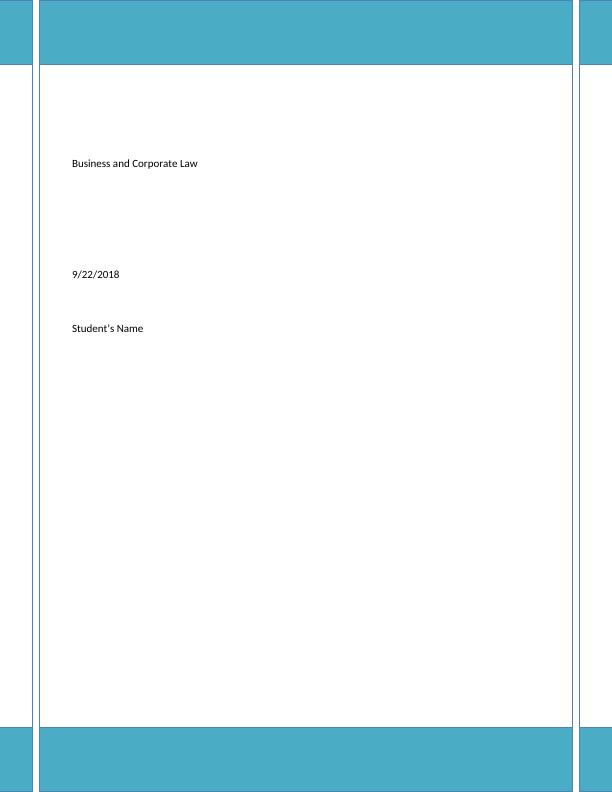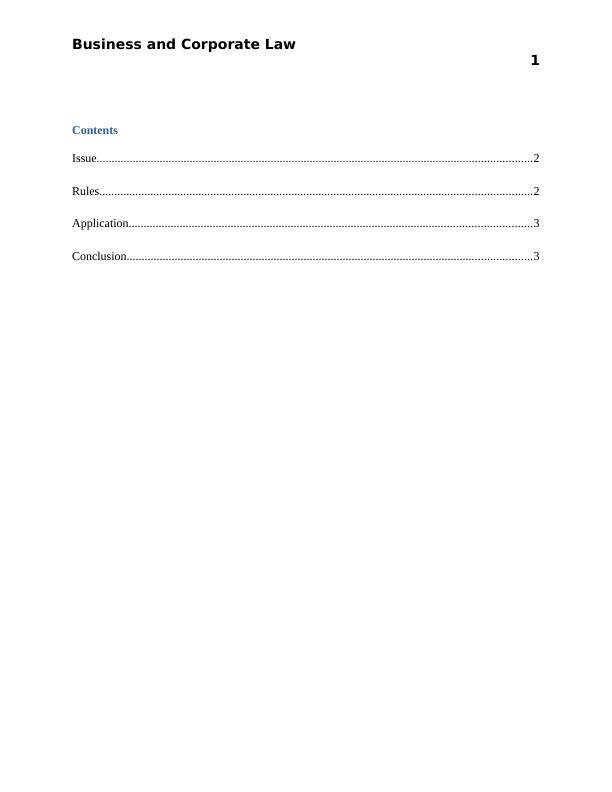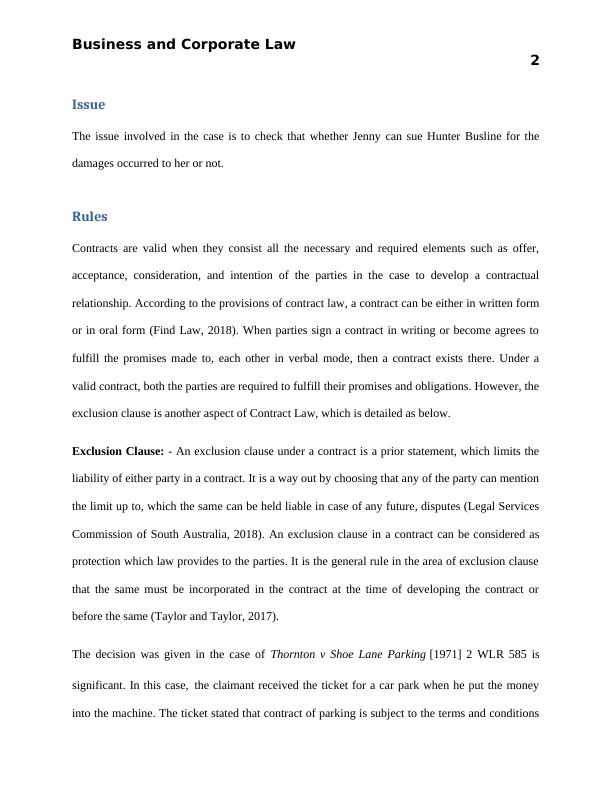Business and Corporate Law: Validity of Exclusion Clause in Contracts
7 Pages1359 Words229 Views
Added on 2023-06-05
About This Document
This article discusses the validity of exclusion clause in contracts under Business and Corporate Law. It analyzes the case of Thornton v Shoe Lane Parking and Thompson v London, Midland and Scotland Railway Co to determine if Jenny can sue Hunter Busline for damages. The conclusion is that although the injury was due to Jenny's negligence, she can sue Hunter Busline as the exclusion clause was not valid.
Business and Corporate Law: Validity of Exclusion Clause in Contracts
Added on 2023-06-05
ShareRelated Documents
End of preview
Want to access all the pages? Upload your documents or become a member.
Business Law Assignment
|9
|2077
|53
Business Law: Exclusion Clause and Unconscionable Conduct
|12
|894
|375
Commercial and Corporation Law: Exclusion Clause and Remedies for Breach of Contract
|7
|1917
|79
Protection to CLM Pty Ltd
|10
|2883
|86
Enforceability of Exclusion Clause in Australian Commercial and Corporation Law
|8
|1804
|58
Corporation and Commercial law Assignment
|7
|1755
|70



